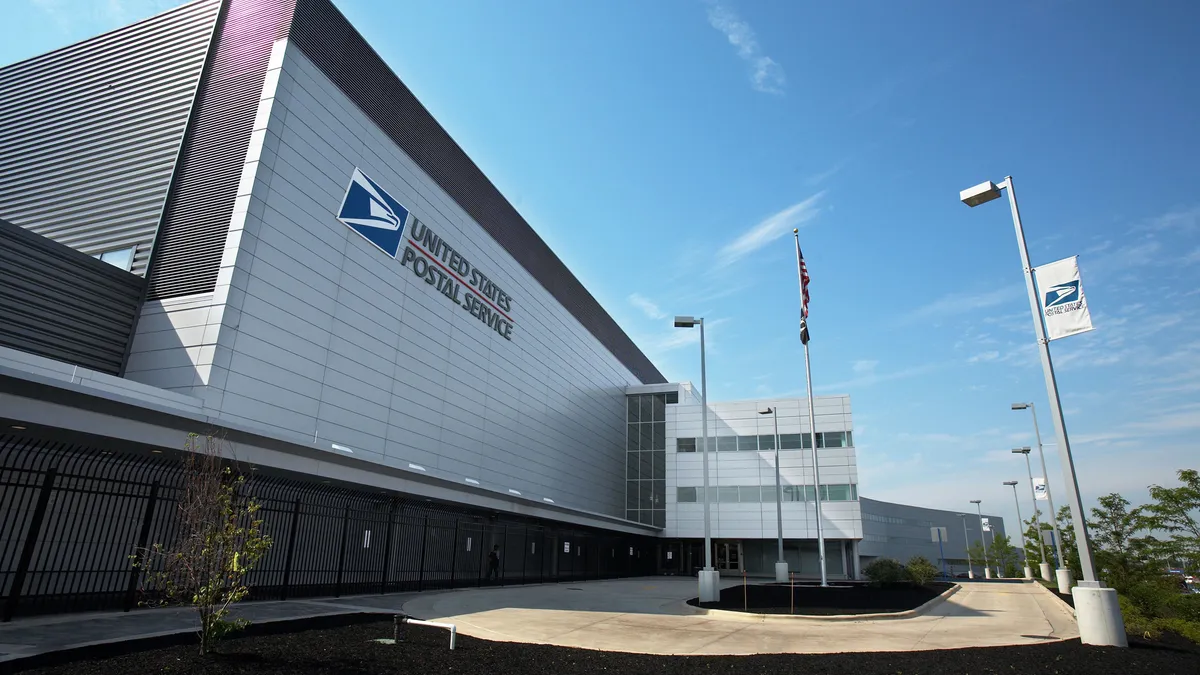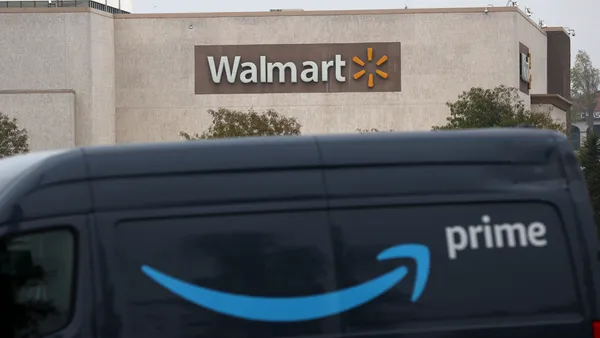Dive Brief:
- The United States Postal Service (USPS) saw package volumes decline by 47 million pieces in the third quarter, a 3.2% drop compared to the same quarter a year ago, according to the agency's Q3 earnings report. This is the first volume drop in nine years, according to a USPS statement emailed to Supply Chain Dive. In addition to declining volumes, USPS reported a net loss of nearly $2.3 billion; and revenue and volume declined across First-Class Mail (2.7%), Marketing Mail (3.0%), and Periodicals (11.2%) for the quarter.
- While the Postal Service has experienced financial losses for the past few years, the volume drop is in part "a reflection of industry in-sourcing of last-mile delivery Parcel Select," David Partenheimer, a media relations manager at USPS, told Supply Chain Dive via email. This suggests attempts by Amazon, FedEx and UPS to court customers with more delivery options and, in Amazon's case, deliver its own packages, is beginning to take its toll in earnest.
- USPS has tried to compensate for declining revenue by raising prices. For this reason, it saw Shipping and Packages revenue grow by 4.8% despite declining volumes. Postmaster General and Chief Executive Officer Megan J. Brennan said this is not enough to turn things around. "We continue to face imbalances in our business model that must be fixed through legislative and regulatory change," Brennan said in the release, mentioning the Postal Service is also looking into adapting its services to better meet consumer needs and streamlining its internal operations to increase efficiency.
Dive Insight:
In May 2019, USPS saw growth in its shipping and package category, attributing it to "successful efforts to compete in shipping services, including 'last-mile' e-commerce fulfillment markets and Sunday delivery as well as end-to-end markets," according to its Q2 report. However, even then, the growth rate was slowing.
Despite ongoing efforts, the Postal Service's operating costs are continuing to rise faster than incoming revenue. USPS' "constrained business model ... is ill-suited to ensure [its] long-term sustainability," Brennan noted in the Q3 report.
According to USPS Chief Financial Officer and Executive Vice President Joseph Corbett, this is driven by its universal service obligation, which requires USPS to deliver anywhere in the United States, including remote locations that are more expensive and resource-intensive to reach and that other carriers are not obligated to service. To account for this cost, Corbett said "we reduced work hours by approximately 1.7 million relative to the same quarter last year," according to the press release.
Package volumes as a whole, particularly e-commerce packages, are increasing year over year. The Postal Service's problem is the packages are being shipped via other private-sector carriers or, more recently, by Amazon itself.
Amazon's move in particular has shaken up the industry, with FedEx and UPS transitioning to seven-day-a-week delivery year-round and faster shipping options.
FedEx also announced its Express and Ground divisions will not renew their contracts with Amazon this year as the carrier believes it can capitalize on e-commerce growth without servicing the major online retailer.















